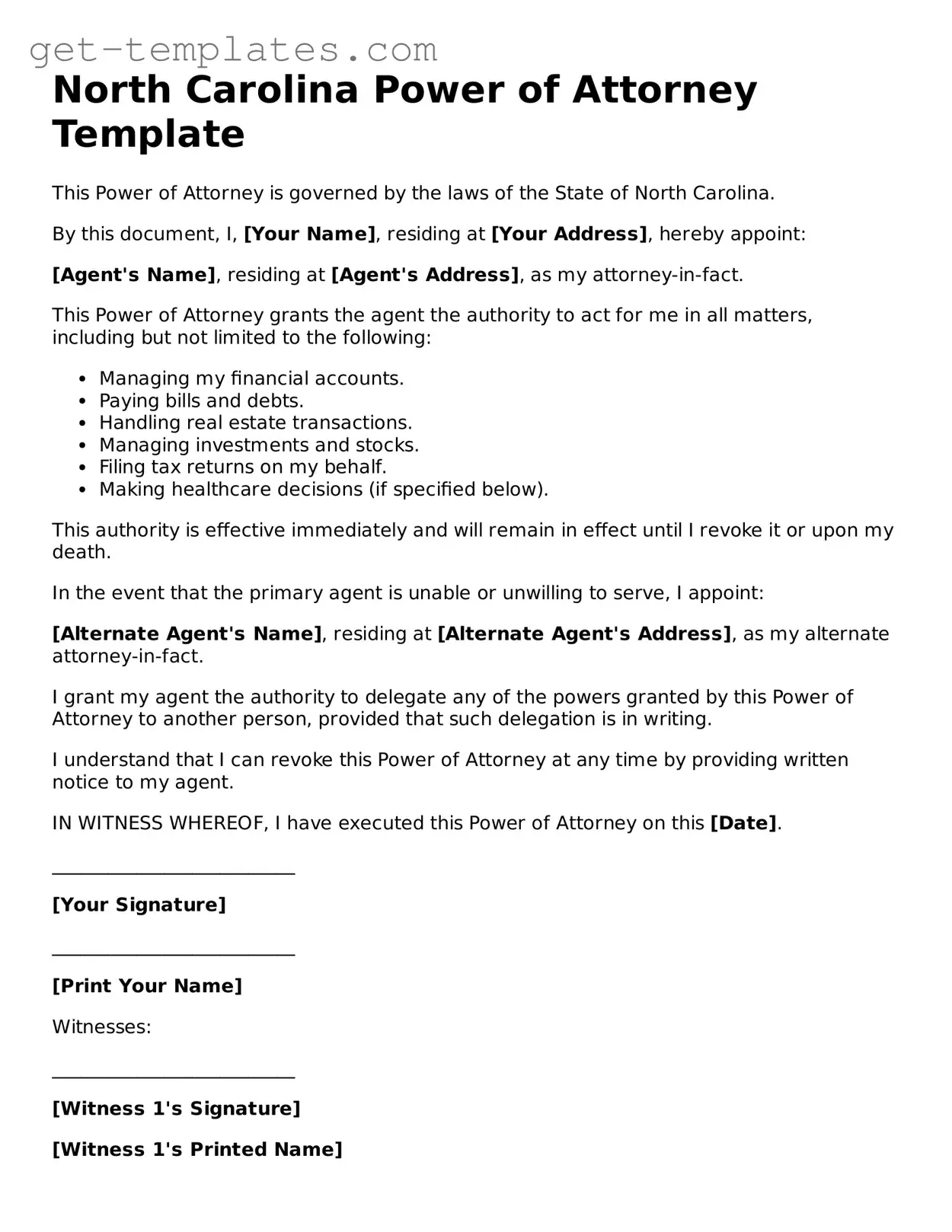Attorney-Approved Power of Attorney Document for North Carolina
A Power of Attorney (POA) form in North Carolina is a legal document that grants an individual the authority to act on behalf of another person in financial or legal matters. This arrangement can be essential for managing affairs when the principal is unable to do so themselves. Understanding the nuances of this form can help ensure that the designated agent fulfills the principal's wishes effectively.
Get Document Online

Attorney-Approved Power of Attorney Document for North Carolina
Get Document Online
You’re halfway through — finish the form
Finish Power of Attorney online — edit, save, download made easy.
Get Document Online
or
⇓ PDF Form
